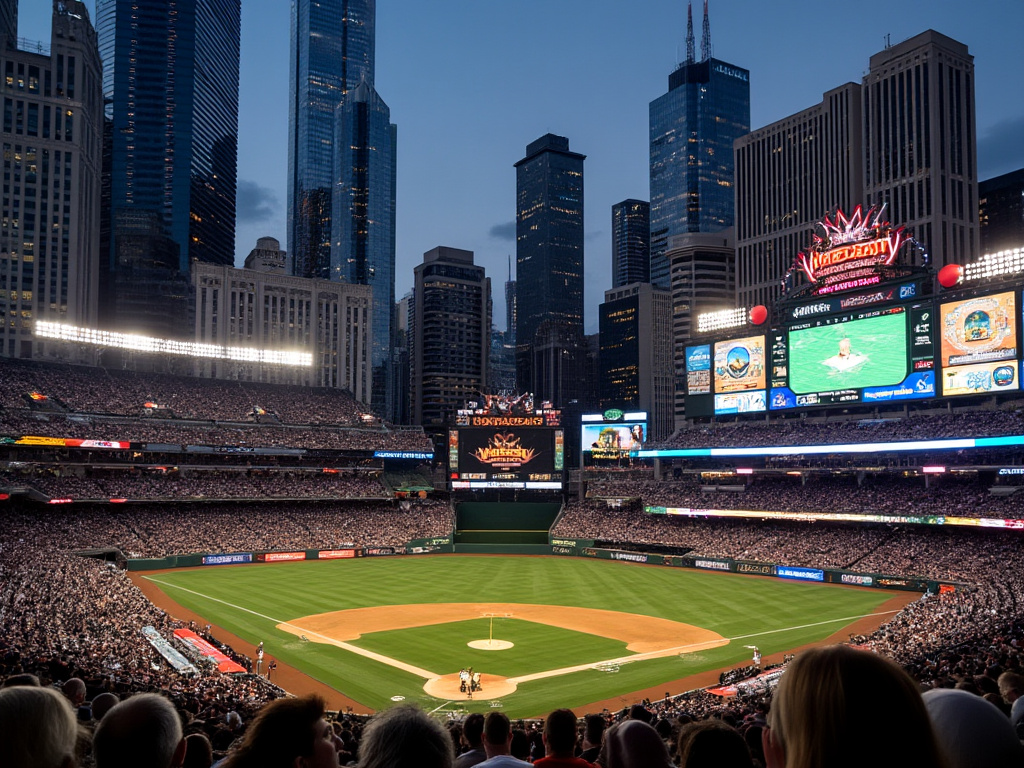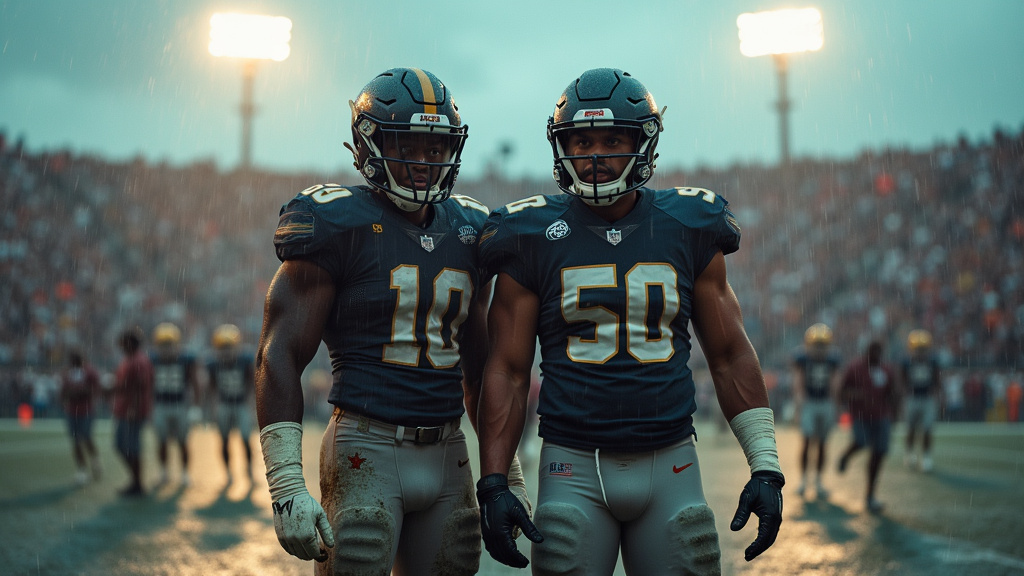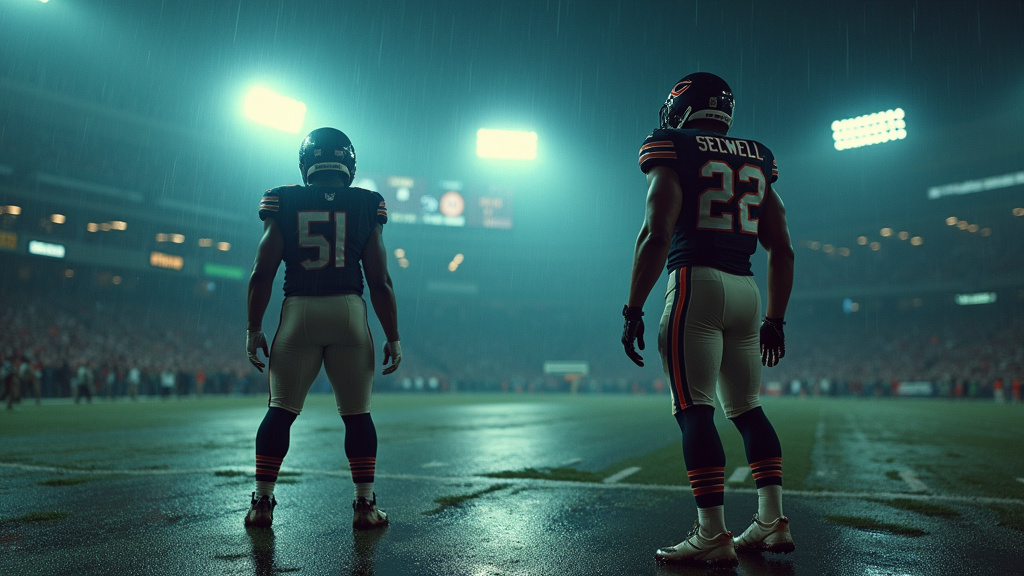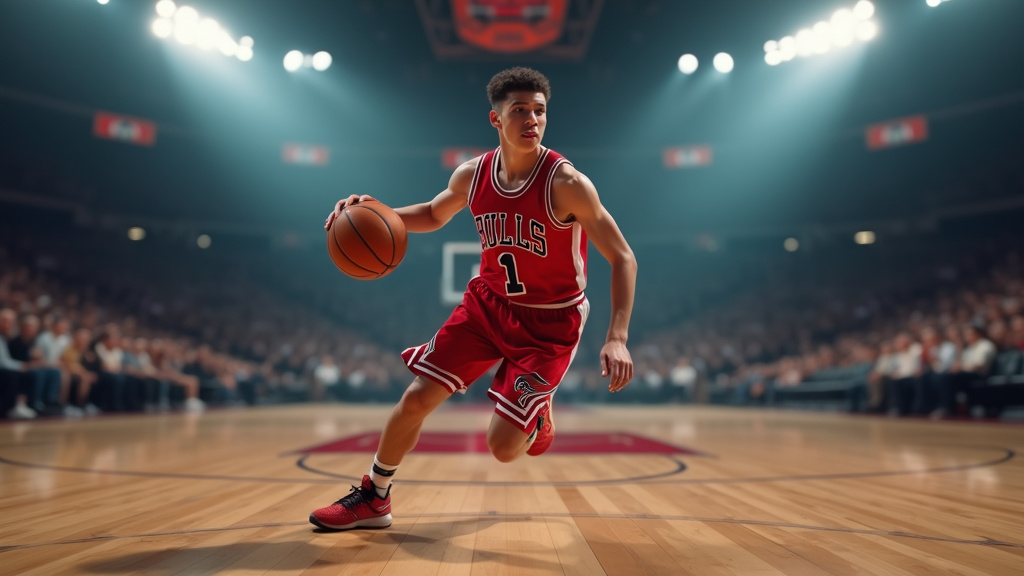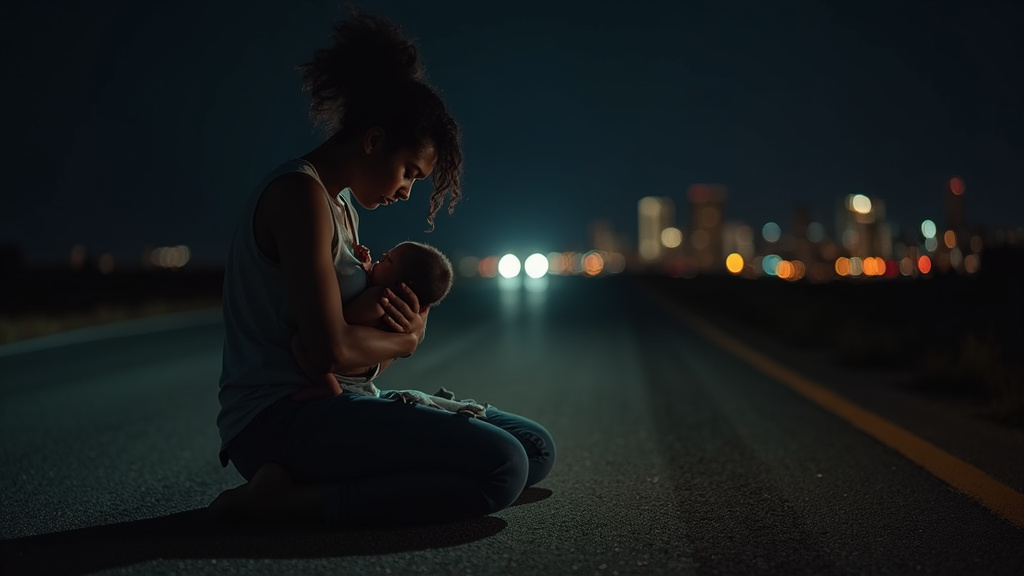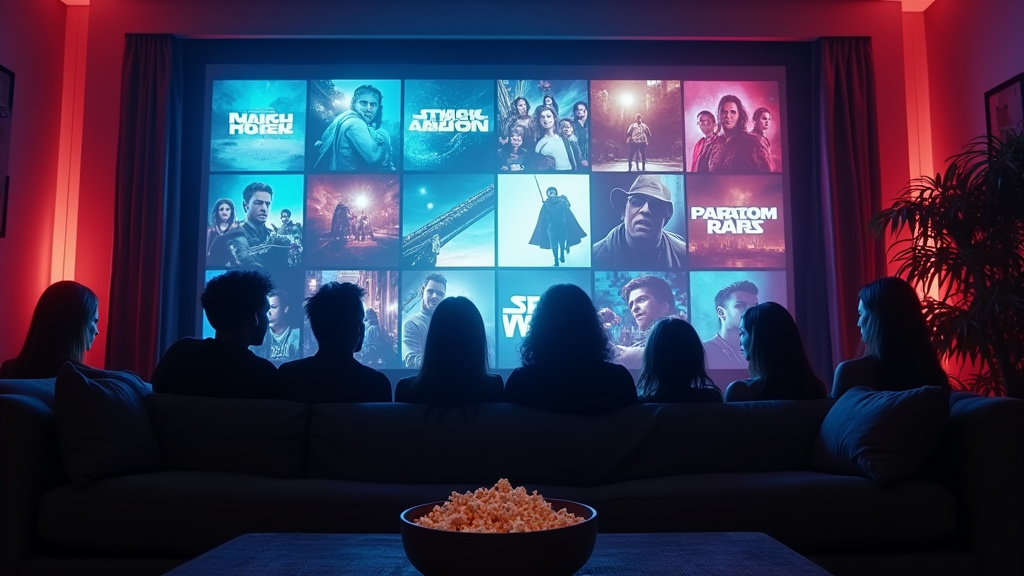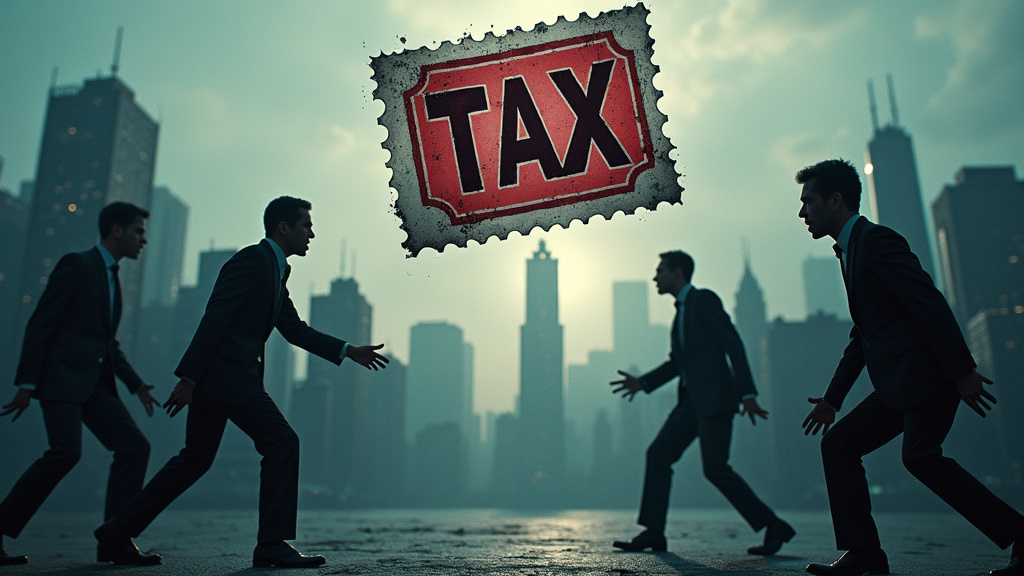Chicago isn’t just a city that watches sports—it breathes them. From the soaring skyscrapers of the Loop to the unassuming neighborhood bars scattered across the South and West Sides, sports are the common language. In Chicago, fandom isn’t a pastime; it’s a badge of identity. Here, sports shape the city’s culture, fuel its rivalries, and provide its greatest moments of joy and heartbreak. No matter the season, the Windy City finds a way to turn every game into an event that binds communities together and stirs up spirited debates that echo far beyond the stadiums.
The Iconic Legacy of Chicago Sports Teams
Few cities can boast the depth and diversity of Chicago’s sports heritage. The Chicago Cubs, the lovable losers turned champions, embody the soul of the North Side. Wrigley Field, with its ivy-covered walls and historic charm, isn’t just a ballpark—it’s a cathedral of hope. Generations of fans endured over a century of heartbreak, passed down from parents to children, until the unforgettable 2016 World Series victory finally arrived. That moment, etched into the hearts of millions, wasn’t just a championship—it was a seismic cultural shift that brought tears to even the most stoic Chicagoans.
And then there are the White Sox, the South Side’s pride and joy. While often overshadowed by their North Side counterparts, the Sox boast a fiercely loyal fanbase. Their 2005 World Series win was an emphatic reminder that the South Side knows how to win—and party. The rivalry between the Cubs and Sox transcends baseball, symbolizing deeper divides in a city that thrives on contrasts.
Of course, no conversation about Chicago sports is complete without mentioning the Chicago Bears. This is a city that reveres its football heroes, from Walter Payton to Mike Ditka, even as it wrestles with the ups and downs of its beloved team. Soldier Field, perched along the lakefront, is more than a stadium—it’s a monument to the grit and resilience of Chicagoans. Even during lean years, the phrase “Bear Down” resonates as a rallying cry for a fanbase that never wavers in its loyalty.
Then there’s the dynasty. The Chicago Bulls of the 1990s didn’t just dominate basketball; they transcended sports entirely. Michael Jordan, Scottie Pippen, and Phil Jackson became global icons, turning the Bulls into a cultural phenomenon. For anyone who lived through the era, the echoes of “The Last Dance” still feel fresh. The United Center’s bronze statue of Jordan, mid-flight, remains a pilgrimage site for fans around the world. Chicago will forever be a basketball town because of those glory days, and even today, there’s an undying optimism that the Bulls will return to greatness.
The Heartbeat of Chicago Sports Fans
What makes Chicago’s sports scene truly unique, however, isn’t just the teams. It’s the fans. Few cities can rival the fervor, passion, and knowledge of Chicago’s sports enthusiasts. Whether it’s the bleacher bums at Wrigley, the die-hard Bears tailgaters braving sub-zero temperatures, or the madhouse atmosphere at Blackhawks games, Chicago fans wear their hearts on their sleeves.
These are fans who know their history and aren’t afraid to call out mediocrity. Yet, they also know how to celebrate victories, big or small, with unbridled enthusiasm. Chicagoans don’t just cheer for their teams; they live and die with them. The highs are euphoric, and the lows are devastating, but the loyalty never wavers.
Bars across the city transform into extensions of the stadiums on game days. Walk into a tavern in Lincoln Park, and you’ll find Cubs trivia nights and decades-old ticket stubs pinned to the walls. Head to Bridgeport, and the pride of the South Side Sox is displayed in vintage photos and jerseys. These spaces aren’t just watering holes—they’re temples of fandom, where strangers become family over shared heartbreaks and triumphs.
The Duality of Hope and Heartbreak
If there’s one word that defines Chicago sports, it’s “resilience.” No city understands the emotional rollercoaster of sports better than Chicago. For every championship moment—Jordan’s buzzer-beaters, the Cubs’ rain-delay rally in Game 7, the Blackhawks lifting the Stanley Cup in 2010—there are countless years of disappointment. The Bears’ last Super Bowl win was in 1985. The Bulls haven’t reached the NBA Finals since Jordan’s departure. And who could forget Steve Bartman, or Cody Parkey’s infamous “double doink”?
But Chicago fans are nothing if not hopeful. Every spring, Cubs and Sox fans emerge from their winter hibernation with renewed optimism. Every fall, Bears fans believe this could finally be the year. And every year, Bulls fans dream of another Jordan-like savior. It’s a cycle of hope, heartbreak, and redemption that defines Chicago sports culture.
Beyond the Game: Community and Identity
What sets Chicago apart is how sports transcend the game itself. They’re woven into the fabric of the city’s identity. Consider the many charity initiatives spearheaded by the teams, from the Cubs’ work with underserved youth to the Bears’ outreach programs. These efforts underscore how Chicago’s sports teams are more than just entertainment—they’re pillars of the community.
Moreover, sports bring Chicagoans together in a way few things can. Whether it’s the joy of a championship parade down Michigan Avenue or the collective groan of another missed playoff, these moments create a shared experience that bridges divides. Sports in Chicago aren’t just about wins and losses; they’re about unity, pride, and a sense of belonging.
The Future of Chicago Sports
As Chicago looks to the future, its sports scene continues to evolve. The Bears’ potential move to Arlington Heights has sparked fierce debate about tradition versus modernization. The Cubs are working to maintain their competitive edge in the ever-changing landscape of Major League Baseball. The Bulls, led by Zach LaVine and DeMar DeRozan, are trying to build a new era of success. And the Blackhawks are rebuilding, hoping to recapture the magic of their Stanley Cup dynasty years.
There’s also the emergence of the Chicago Sky, the city’s WNBA team, whose 2021 championship proved that women’s sports deserve just as much attention and acclaim. Soccer is gaining traction too, with the Chicago Fire rekindling interest in the beautiful game. The city’s sports future is bright, full of possibilities and new narratives waiting to be written.
In Chicago, sports aren’t just games—they’re life. They’re the stories we tell, the memories we cherish, and the dreams we chase. From Wrigley Field to the United Center, from Soldier Field to Guaranteed Rate Field, Chicago’s sports venues are more than arenas—they’re sanctuaries for a city that never stops believing.
For every heartbreak, there’s hope. For every loss, there’s loyalty. That’s what makes Chicago the greatest sports city in the world.


